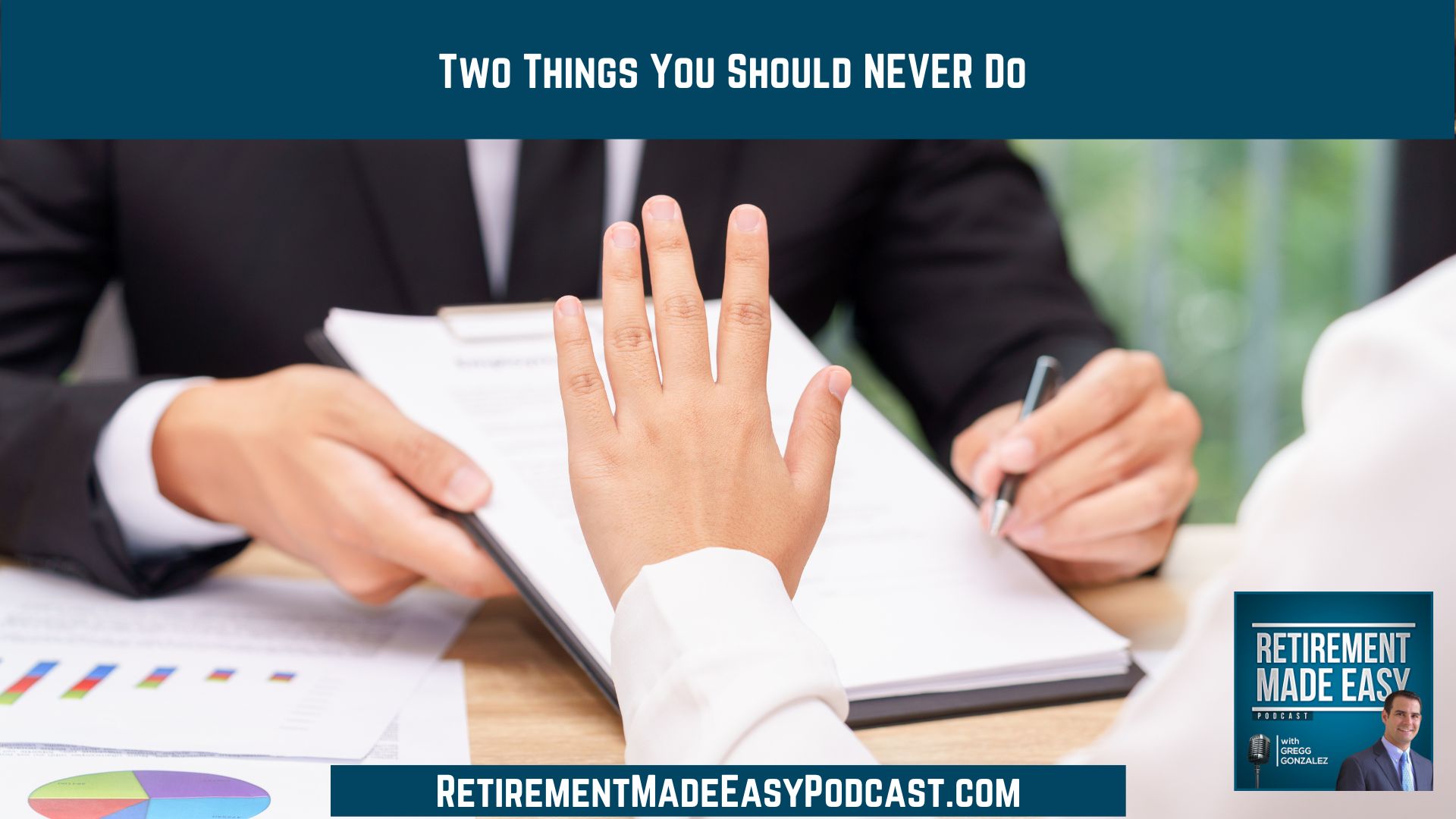
I recently had a conversation with someone who retired a year ago. Sadly, his financial advisor gave him the worst advice I’ve heard in a long, long time. So in this episode of Retirement Made Easy, I’ll share why it was such poor advice and the two things you should never do. I’ll also answer a couple of listener questions at the end. Don’t miss it!
You will want to hear this episode if you are interested in…
- [3:20] The worst retirement planning advice I’ve heard
- [10:11] Being armed with knowledge leads to confidence
- [11:14] Listener Question #1: Why can’t I roll over my 401k?
- [16:05] Listener Question #2: Why I won’t work with Wells Fargo
Never get a home equity line of credit to live on
I was talking with this prospective client about the bucket approach to retirement planning. The first bucket is your emergency fund (3 months to two years of liquid assets). The second bucket is dedicated to producing an income that will supplement your social security income. Bucket number three is your “growth” bucket. The cost of living and healthcare expenses will continue to grow. Bucket #3 helps you keep up with those costs.
His financial advisor advised him—while the stock market is down—to get a home equity loan to draw the income he needed to live on for the next 2+ years. The goal was to spend the equity in the home and avoid dipping into bucket #2 to let it recover. This is terrible advice. I never recommend getting a home equity loan to live on. Why? Because bucket #2 is designed to provide you income.
Never get cash value life insurance to borrow money
It’s just as bad as using cash value life insurance to borrow the cash value. When you take a withdrawal, you’re taking a loan from your policy and paying the insurance company an interest rate to borrow from your policy.
If I recommended either of those options to my clients I could lose my license and be barred from the industry. If you’re looking for retirement income when the market is down, stick to your buckets. You have a nest egg earmarked and invested properly. Use it. And remember—it’s natural for your portfolio to go up and down in value.
Listener question #1: Why can’t I roll over my 401k?
One of my listeners, Beth, said her brother turned 65 and is not yet retired. But he rolled his 401k into a rollover IRA to make more investment choices. Beith—who is 63—contacted her 401k company and was told she can’t roll hers over until she retires.
When you work for an employer with a 401k, some allow you to roll over your 401k into an IRA while you’re still working for that employer (after you turn 59 ½). But depending on your employer and how the plan document is written, some 401ks don’t allow you to roll over your plan. Every 401k plan is different.
Why won’t I work with Wells Fargo? What unethical business practices do they employ that show they aren’t operating in your best interest? Listen to find out!
Resources & People Mentioned
- Build your retirement action plan at RetirementMadeEasyPodcast.com
- Get a FREE 30-minute retirement coaching call
- The Retirement Bucket Strategy
Connect With Gregg Gonzalez
- Email at: Gregg@RetireSTL.com
- Podcast: https://RetirementMadeEasyPodcast.com
- Website: https://StLouisFinancialAdvisor.com
- Follow Gregg on LinkedIn
- Follow Gregg on Facebook
- Follow Gregg on YouTube



